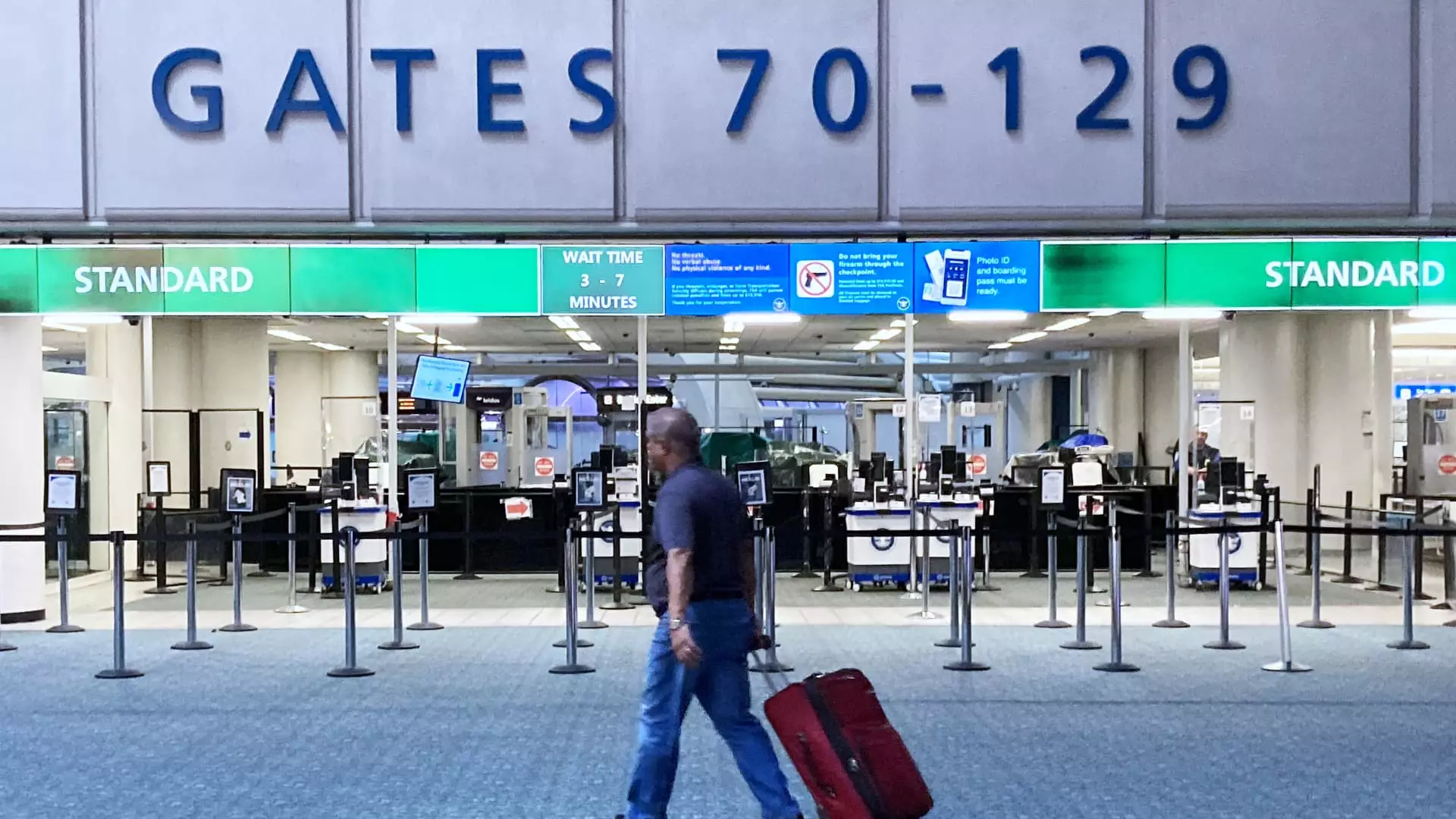As the holiday season approaches, the United States grapples with the unsettling prospect of a government shutdown. With lawmakers at a stalemate, a proposed short-term funding bill has been dismissed, raising concerns about the potential impact on travelers during one of the year’s busiest periods. This standoff threatens to take effect as soon as midnight ET on Saturday, casting uncertainty over numerous federal operations, including those vital to holiday travel.
The ramifications of a government shutdown extend beyond the usual political strife; thousands of government employees would be furloughed, creating unease in various sectors reliant on federal oversight. Moreover, the shadow of a shutdown looms large over the traveling public, particularly with the Transportation Security Administration (TSA) expected to manage the busiest travel season on record.
The holiday travel landscape is already looking crowded, as airlines like United Airlines anticipate a significant surge in passengers, forecasting an increase of 12% compared to the previous year. The TSA has braced itself for an influx of over 40 million travelers expected to journey through security checkpoints from now until January 2. Despite the looming possibility of a government shutdown, commercial flights remain scheduled, indicating confidence in the system’s resilience, even as uncertainty grips surrounding TSA staffing and airport operations.
Interestingly, the federal government deems key personnel within the TSA and the air traffic control system as “essential.” This classification means that despite potentially working without pay, these employees will continue to fulfill their duties. David Pekoske, the administrator of the TSA, communicated via social media that TSA officers would handle the high volume of travelers as planned. However, he acknowledged the likelihood of extended wait times at security checkpoints, reinforcing the disruptions travelers may face should a shutdown take place.
This looming shutdown is reminiscent of the lengthy government funding lapse that occurred during the final months of 2018 into early 2019. That shutdown, the longest in U.S. history, revealed vulnerabilities within the air travel system, particularly as a few air traffic controllers called in sick, leading to significant congestion in the East Coast’s high-traffic airspace. The aftershocks of that shutdown compelled lawmakers to reach an agreement swiftly, emphasizing the need for a stable and efficient travel environment, especially during peak times.
As the nation watches this political drama unfold, voices from within the airline industry express the urgent need for technological modernization and improved hiring practices within the Federal Aviation Administration (FAA). The departure of FAA chief Mike Whitaker, who will leave his position just as the new presidential administration begins, underscores the urgency for stable leadership to tackle these pressing issues. Prominent figures, such as Delta Air Lines’ CEO Ed Bastian, have called for immediate attention to air traffic control infrastructure to prevent future disruptions and enhance overall efficiency.
As travelers prepare for the holiday season, they must remain vigilant amid the uncertainties of a government shutdown. The combination of logistical challenges and potential delays may significantly affect holiday travel plans, urging both lawmakers and federal agencies to prioritize solutions that ensure a smooth and safe journey for millions of Americans.


Leave a Reply